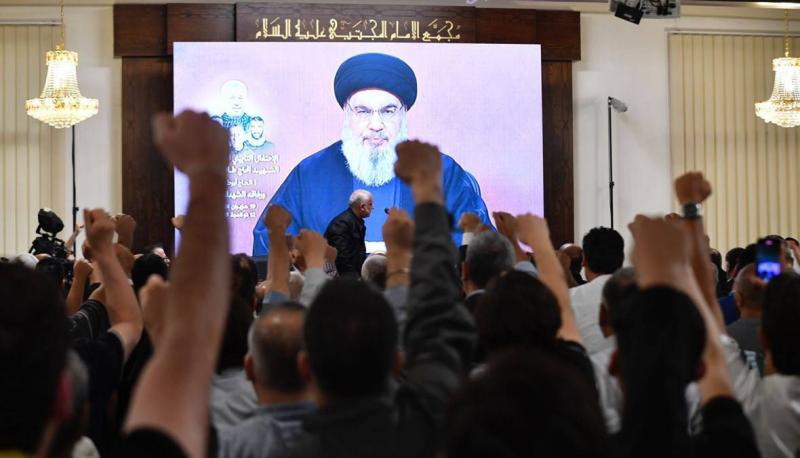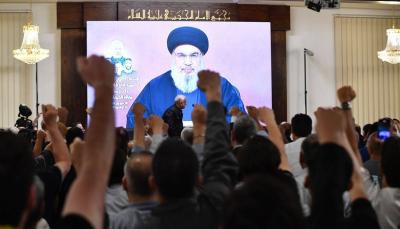Current Secretary General of the Lebanese "Hezbollah," Hassan Nasrallah, is the most continuous leader of the party affiliated with the theory of the Guardianship of the Islamic Jurist. The 64-year-old man has led the party since 1992, thus spanning three decades and entering the fourth, making him longer in his "presidential" position than any Arab or possibly Islamic head of state. The only one who precedes him in seniority is Ali Khamenei, the Supreme Leader of Iran and head of the Guardianship of the Jurist since 1989, who is only a few years ahead of his disciple.
We have witnessed Nasrallah over the years, watching his fiery speeches and campaigns inside and outside Lebanon. We have followed him dozens of times as he mourned some of the party's major leadership losses, from the time when his hair was black and his vitality echoed the revolution of youth, to today when gray hairs have streaked his features.
Undoubtedly, he has formed a major attraction for Iranian propaganda over these decades, peaking during the 2006 War which Nasrallah and his followers described as a divine victory. We saw some figures from the Brotherhood movements, as well as some "intellectuals" and activists from the Resistance Axis, remnants of Nasserists and leftists, flocking to pilgrimage to Nasrallah in the southern suburb of Beirut to take pictures with him. This was before he decided, or was directed by the leadership of the "Quds Force," to hide in a bunker, in a semi-glorified absence, and limit his appearances to rare television appearances and meetings with "family and party kin."
A few days ago, reports emerged about an Iranian warning to Nasrallah regarding Israeli intentions to assassinate him personally. In fact, these assassinations attributed to Israel, some of which are confirmed while others are disputed, are not new. For example: the assassination of "Hezbollah" Secretary-General Abbas al-Mussawi on February 16, 1992, in Nabatieh, southern Lebanon; the assassination of military and security leader Imad Mughniyeh on February 12, 2008, in Kfar Sousa, Syria; and the assassination of Mughniyeh's successor, Mustafa Badr al-Din, on May 13, 2016, in Damascus, Syria.
A report by the newspaper "Yedioth Ahronot" stated that an Iranian envoy arrived in Beirut immediately after the assassination of the leader of the "Nasr" unit affiliated with "Hezbollah" in southern Lebanon, Samy Abdullah, and met with close associates of Hassan Nasrallah in a closed room to inform them of Iran's concern that Israel is targeting Nasrallah himself. Former Mossad chief Yossi Cohen told the Israeli newspaper: "We know the exact location of the Secretary-General of the terrorist organization and can eliminate him at any moment." He added: "If a decision is made to settle accounts with Nasrallah, Israel can do so at any time."
It might be said that this statement is part of Israeli psychological warfare. However, the reality indicates that the Israeli striking hand has long reached deep into Iran and has targeted major figures in Lebanon, Syria, and everywhere else. So why has the "political decision" not yet been made in Israel regarding this matter?




